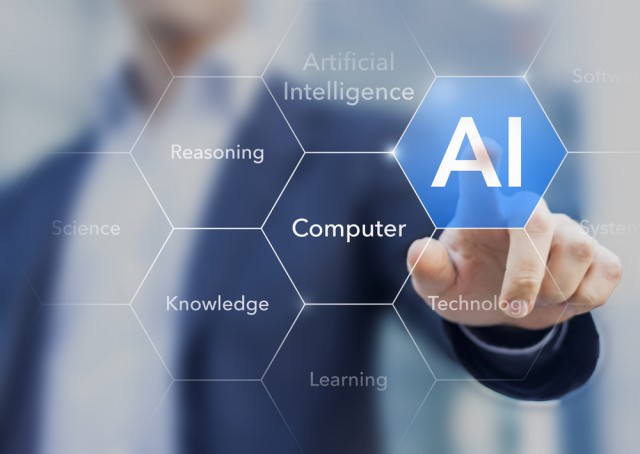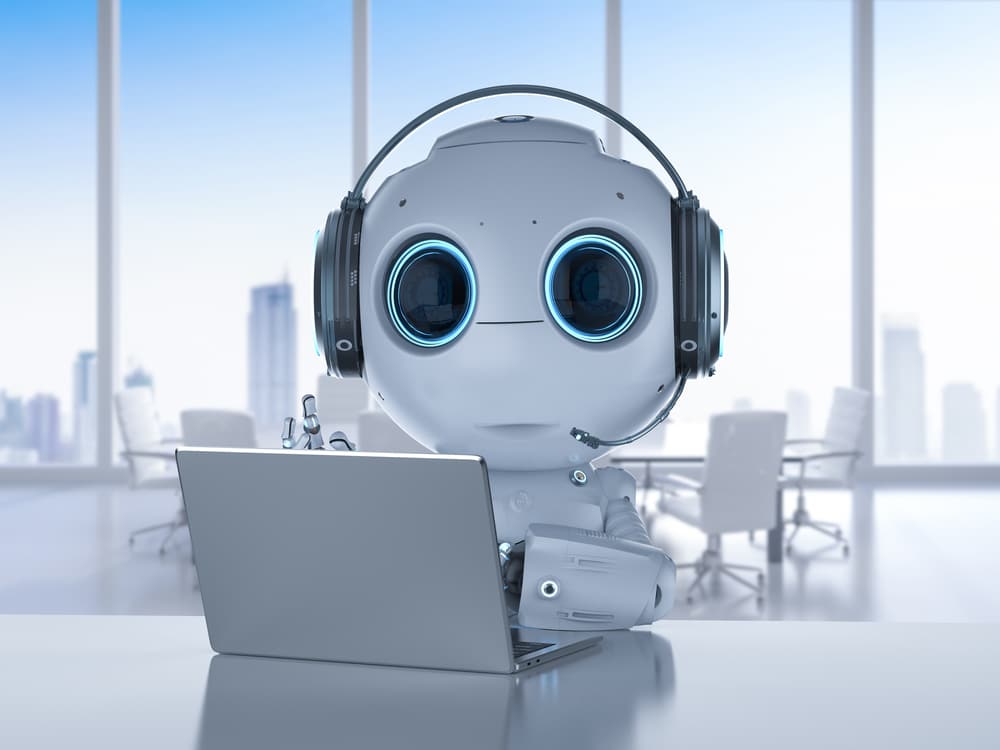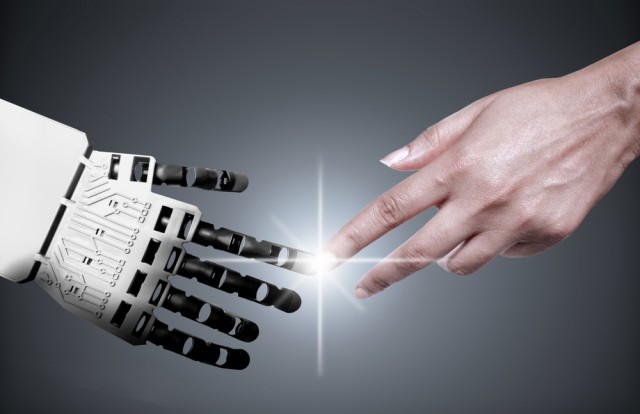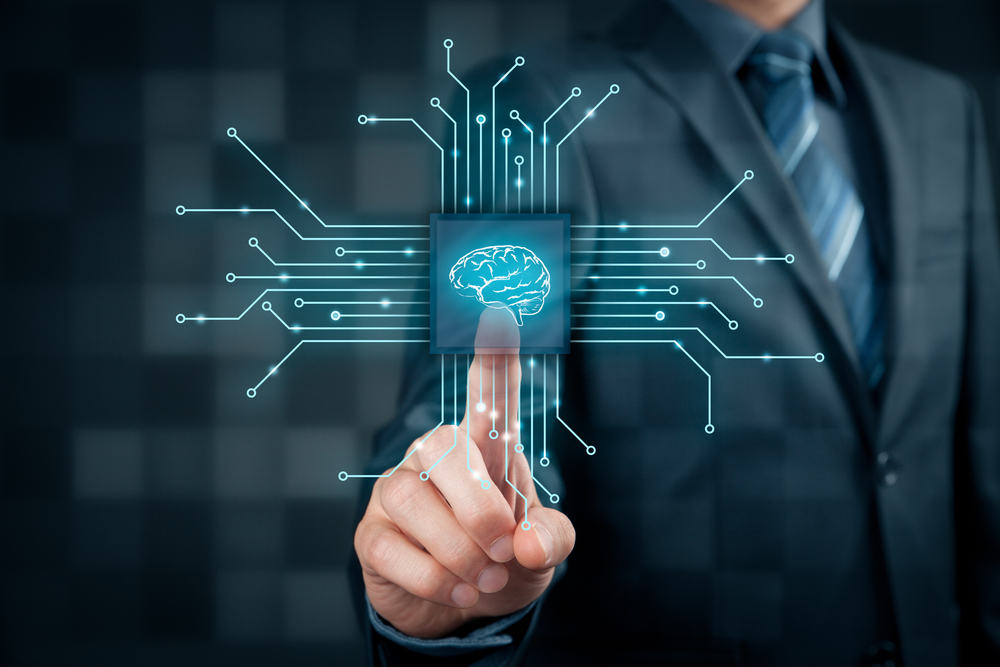
The automation revolution and the shift in labor
If you’re a college student and you’ve placed an online food service order, and let’s be honest, that pretty much covers all college students; the chances are high that the delivery was aided and abetted by robot technology. The future has arrived, and even though we’re still waiting for those Jetson’s-promised flying cars, robot foodservice delivery is here.
Robots numbering in the hundreds are buzzing about college campuses and some selected cities in the U.S., U.K., and beyond. The testing, which began pre-pandemic, went into immediate overdrive to fill in the gaps created by the labor shortages and need for social distancing created by Covid-19.

How AI revolutionizes retail and powers eCommerce customer journeys
Artificial intelligence (AI) technologies are unlocking new opportunities for brands and retailers to push the boundaries of online shopping and customer experience. As global retailers are expected to spend $7.3 billion on AI this year and the global market for AI software is expected to reach $126 billion by 2025, AI presents many benefits and opportunities within the context of the eCommerce industry including more targeted marketing and advertising, increased customer retention, efficient sales processes, better product development, and innovative shopping experiences.
Here are eight applications of AI in eCommerce that can take both backend processes and customer-facing experiences for brands to the next level.

The road ahead for artificial intelligence [Q&A]
There has been a lot of buzz surrounding the adoption of artificial intelligence. According to a recent report from McKinsey 57 percent of companies are now using AI in at least one function. But how much is hype and how much is built on a sound commercial base?
We spoke to Mike Loukides, VP of emerging tech content at O'Reilly Media and author of O'Reilly Media's widely-cited AI Adoption in the Enterprise report, to discuss the current state of AI and what lies ahead.

Malware is being geared to evade AI-based defenses
The latest Cyber Threat Landscape Report out this week from Deep Instinct reveals that bad actors are clearly investing in anti-AI and adversarial attack techniques and integrating these methods into their larger evasion strategy.
It also highlights a change in the way attacks are carried out and says we are now witnessing some groups opting to inflict maximum impact over a shorter time span. These short duration attacks are carried out with the goal of damaging data (its confidentiality and availability), destabilizing a business, and impairing business continuity.

AI is key to unlocking customer service excellence in 2022
In a world where switching brands is easier than ever before, customer service is increasingly central to maintaining brand loyalty, and how organizations streamline customer interactions will be critical to a successful strategy. In fact, a survey by PwC found that 32 percent of customers would stop doing business with a brand they love after just one poor experience.
This underlines the speed at which customer expectations are evolving. Many are now demanding a near perfect online experience and with more competition than ever before, organizations need to do all they can to ensure they keep customers on side. This is already being achieved with more businesses adopting the correct omnichannel capabilities but it’s imperative they go one step further and provide a service that makes them stand out from the competition. This is where artificial intelligence (AI) comes into play.

Tying Artificial intelligence and web scraping together [Q&A]
Artificial intelligence (AI) and machine learning (ML) seem to have piqued the interest of automated data collection providers. While web scraping has been around for some time, AI/ML implementations have appeared in the line of sight of providers only recently.
Aleksandras Šulženko, Product Owner at Oxylabs.io, who has been working with these solutions for several years, shares his insights on the importance of artificial intelligence, machine learning, and web scraping.

Managing AI risk: What are you waiting for?
Recent headlines have brought much-needed attention to questions surrounding algorithmic fairness. Regulators are taking notice. To date, EU officials put forth proposed language for aggressive new AI oversight. The Federal Trade Commission has published governance principles on the responsible use of AI, holding that existing law already empowers U.S. regulators to take corrective action. Additionally, a panel of AI experts testified before Congress about the potential inequities of algorithmic decision systems.
Many argue that increased regulation could stifle innovation, putting some nations at a disadvantage in the global arms race for AI dominance. But if the alternative is to do nothing, we could be creating even bigger risks, threatening our fundamental principles of fairness and equality.

Artificial intelligence and business: What will the future look like?
As per a study, 91.5 percent of the firms are reported to have an interest in investing in artificial intelligence technology. Growth in the use of automation, 5G, databases, cloud computing, and much more are driving the demand for artificial intelligence.
Various industries are incorporating AI in their processes to improve customer experience and business operations. Small and medium enterprises are utilizing this technology to optimize performance and functions at minimum costs.

AI is key, metaverse is not important -- CIO's top priorities for 2022
New data from PwC in its latest Pulse Survey finds that 43 percent of CIOs cite refining their IT strategy and operating models to be more agile as being a top priority in 2022.
In order to achieve this about a third will prioritize leveraging infrastructure investments to move from traditional data centers to cloud-based, or leveraging enterprise-wide data and analytics to drive strategic decision-making

Reacting with confidence to a new Trojan horse cyber threat
It’s the sophisticated technology that enables the virtual assistant on your kitchen counter, the recommendation engines on your favorite streaming services, and so much more -- and there’s new evidence hackers can use it as a Trojan horse to deliver malware. Because this technology is increasingly embedded not just in your movie nights, but critical industries from healthcare to energy and banking, its newly understood vulnerability is grave news.
But do we tear it out by its roots? Isolate it? No. Artificial intelligence is too important for that -- particularly, ironically enough, in cybersecurity defense. We have no choice but to confront the Trojan horse gambit and block it.

Power in people: How human capital will determine tech success
According to the Economist, one of the most significant outcomes of the pandemic will be "the infusion of data-enabled services into ever more aspects of life." We were already expecting a transition to digital transformation thanks to technological advancement, dubbed the "fourth industrial revolution".
However, following on from the pandemic which forced countless businesses to switch to remote working virtually overnight, we expect digital transformation to continue to be adopted on a larger and more rapid scale -- becoming an even more prominent objective for organizations in the future.

How AI can offer businesses greater control over their payments [Q&A]
We none of us particularly like handing over money, and that applies equally to businesses and individuals.
Payments are essential to the commercial world, up to now though they've always been a quite labor intensive to process. But what if it could be automated? Would you feel comfortable handing over control of payments to AI?

Machine learning implemented by 68 percent of organizations
New research shows that 68 percent of chief technical officers (CTOs) have implemented machine learning at their company.
What's more the study, from software development company STX Next, reveals that 55 percent of businesses now employ at least one team member dedicated to AI/ML solutions, although only 15 percent have their own separate AI division.

Wearables, telehealth and AI -- healthcare tech predictions for 2022
Technology has had an impact on most areas of our lives. In the healthcare sector the pandemic has seen a rise in the use of remote consultations and more.
In the next year experts expect this to continue along with trends towards AI, wearables and more.

How AI-as-a-Service is perfectly poised to meet next-era production's ramp-up & capacity challenges
Manufacturing and the science of materials are evolving quickly, so the rate of new products and product variations industrials put into the world is increasing. This evolution also means process parameters, which circumscribe the making of things, are proliferating. Meanwhile, the quality metrics of products and components have become more refined than ever before.
As a by-product, industrial equipment sensors generate an abundance and complexity of data far beyond the reach of statistical process control -- let alone human capacity. Semiconductor engineers, for example, must contend with petabytes of data daily. And they do so from wafers with chip architectures fabricated to accommodate hundreds of millions of transistors per square millimeter.
